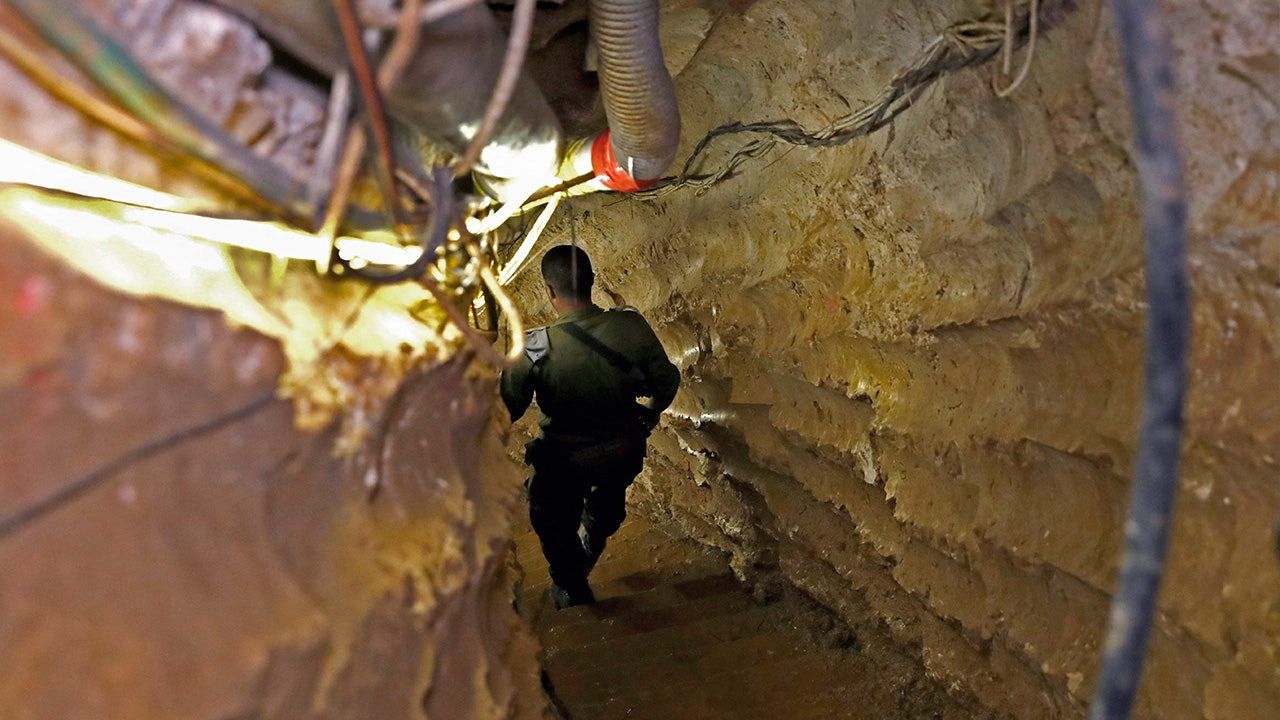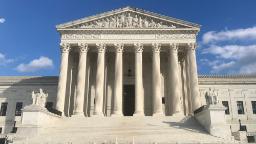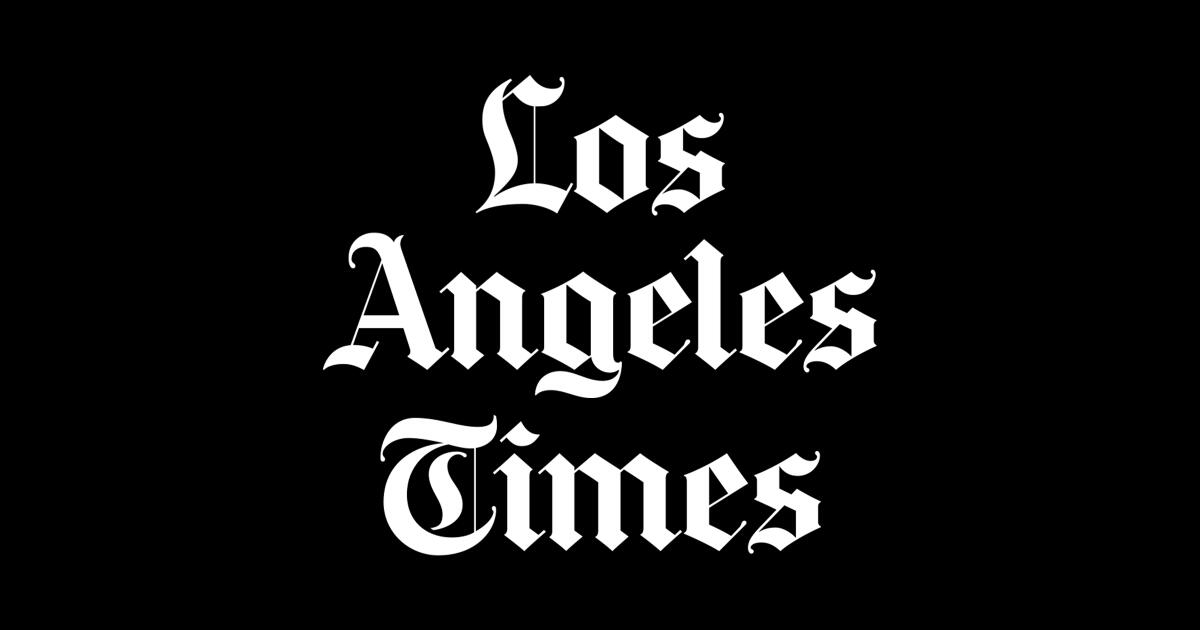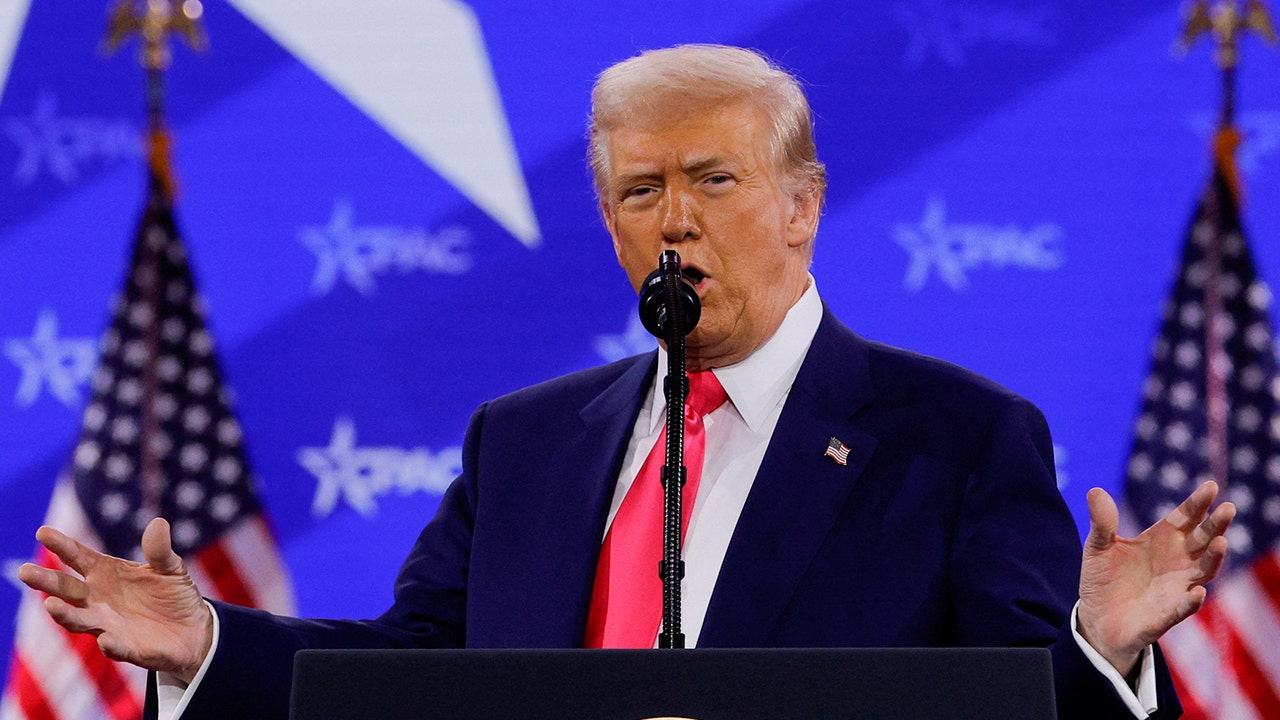Even though Israel has been waging war with Hamas in Gaza for nearly a year following the October 7 attacks, security experts continue to sound the alarm that the biggest threat to Jerusalem actually lies to the north in Lebanon, where Hezbollah has developed a sophisticated tunnel system.
Hezbollah, an Islamic terrorist organization long backed by Iran, has developed a network of tunnels stretching more than 160 kilometers in total across southern Lebanon over the past two decades.
Although the existence of the tunnels has been known for decades, the important role they play in arming Hezbollah has come to light again during the war between Israel and Hamas in Gaza, where the terrorists have not only relied on the tunnels for operational rearmament and maneuverability, but also to house hostages taken by Hamas nearly a year ago.
While the Israel Defense Forces (IDF) is estimated to have eradicated about 80% of Hamas tunnels, Hezbollah tunnels, which have largely remained untouched since the Gaza war began, are believed to be far more sophisticated and “significantly larger,” according to a report by the Alma Research and Education Center, a nonprofit that researches Israeli security challenges along its northern border.
Netanyahu hits back at global pressure to make concessions on ceasefire, says demands are 'immoral' and 'insane'
A guided tour by the Israeli military on June 3, 2019, shows the inside of a tunnel under the border between Lebanon and Israel. (JACK GUEZ/AFP via Getty Images)
Hezbollah is believed to have started exploiting its tunnels after the Second Lebanon War in 2006, in close coordination between Iran and North Korea, after Tehran was allegedly “inspired” by Pyongyang and the tunnels it developed after the Korean War.
Iran considered North Korea a “professional authority on tunnels” due to its experience in digging tunnels for military use when it attempted to bore tunnels through the Korean Demilitarized Zone in an attempt to militarily invade areas just north of Seoul, the South Korean capital.
Although the authoritarian nation never realized the tunnels and their intended use, two of the four neutralized tunnels discovered were reported to have the capacity to accommodate up to 30,000 troops per hour along with armaments such as armored personnel carriers, tanks and field artillery, an operational model Hezbollah has resorted to in its fight against Israel.
The report concluded that Hezbollah, under North Korean advice (a relationship that may have begun as early as the 1980s), built two types of tunnels in southern Lebanon: “offensive tunnels and infrastructure tunnels.”
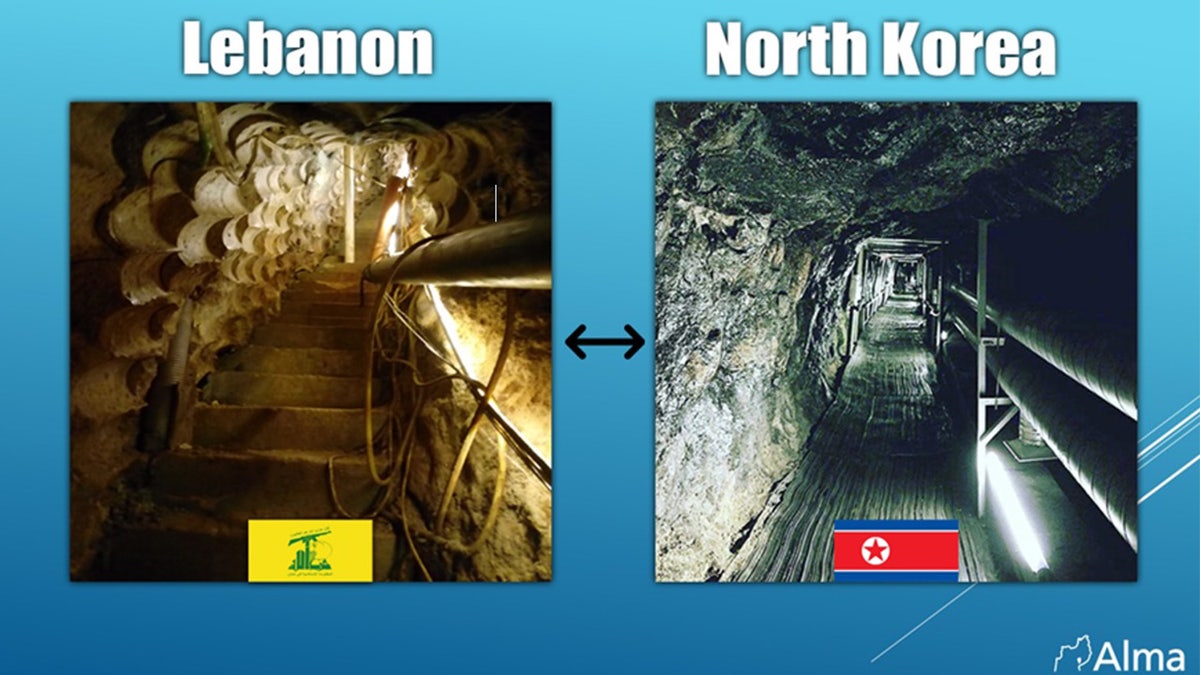
This image provided on Friday shows a comparison between tunnels dug by North Korea and Hezbollah. (Alma Research and Education Center)
The offensive tunnels were intended for operational use similar to that in North Korea, and IDF forces discovered at least six tunnels leading into Israeli territory during Operation Northern Shield, which began in December 2018.
Alma's investigation found that some of Hezbollah's tunnels can also carry all-terrain vehicles, motorcycles and other “small vehicles,” though he did not specify how many terrorists they could hold.
The tunnels are equipped with “underground command and control rooms, weapons and supply depots, field clinics, and shafts specifically designated for firing missiles of all types,” the report said, noting that weapons such as rockets, surface-to-surface missiles, anti-tank missiles, and anti-aircraft missiles can be fired from the “shafts” in the tunnels. “These shafts are hidden and camouflaged and cannot be detected on the surface.”
Justice Department charges Hamas leaders with 'terrorist atrocities' in Oct. 7 attack in Israel
The tunnels are believed to connect the capital Beirut, home to Hezbollah's headquarters and logistics base in the Beqaa Valley near the Syrian border, to southern Lebanon.
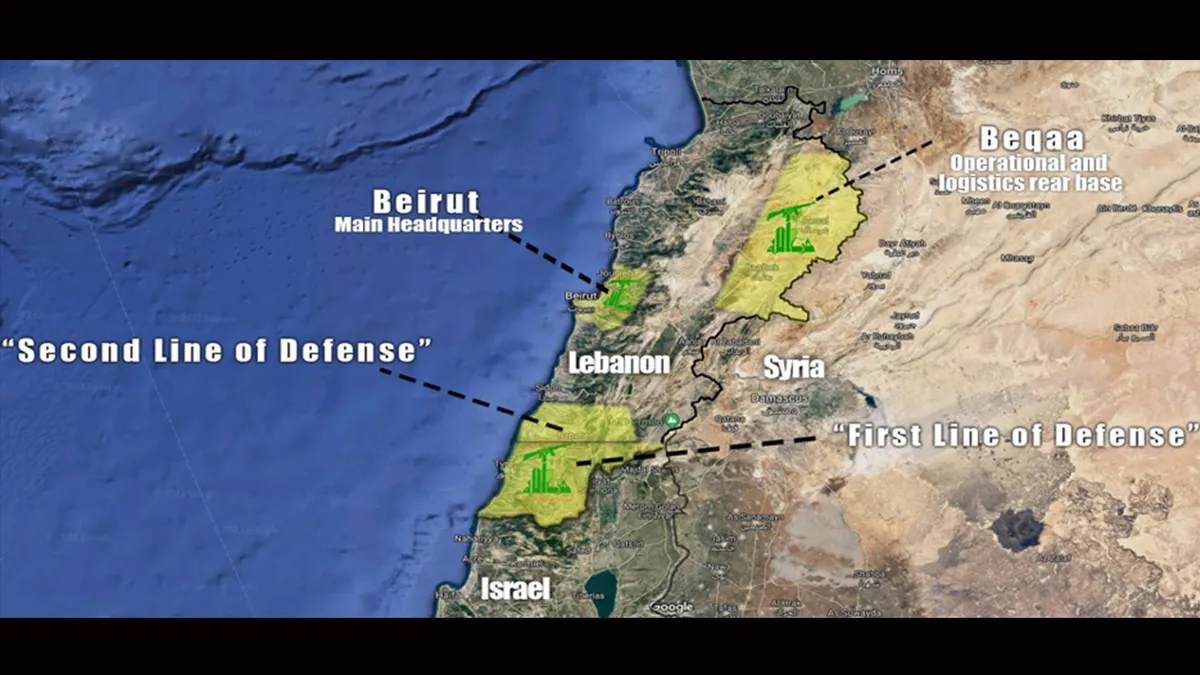
This image provided on Friday shows areas where Hezbollah has infiltrated Lebanon. (Alma Research and Education Center)
“We call this interregional tunnel network 'the land of Hezbollah tunnels,'” details the Alma report first published in 2021, noting that the tunnel system is more like a “subway” of tunnels than a single long tunnel.
The second series of tunnels mined by Hezbollah, known as infrastructure tunnels, form an underground network in and around villages in southern Lebanon that establishes the first and second “lines of defense” against an Israeli invasion, a project of “enormous magnitude,” according to Alma's report.
One of those tunnels is estimated to be nearly 45 kilometers long, raising the question of how the terrorist organization was able to get away with building such a sophisticated system without opposition from the Lebanese government.
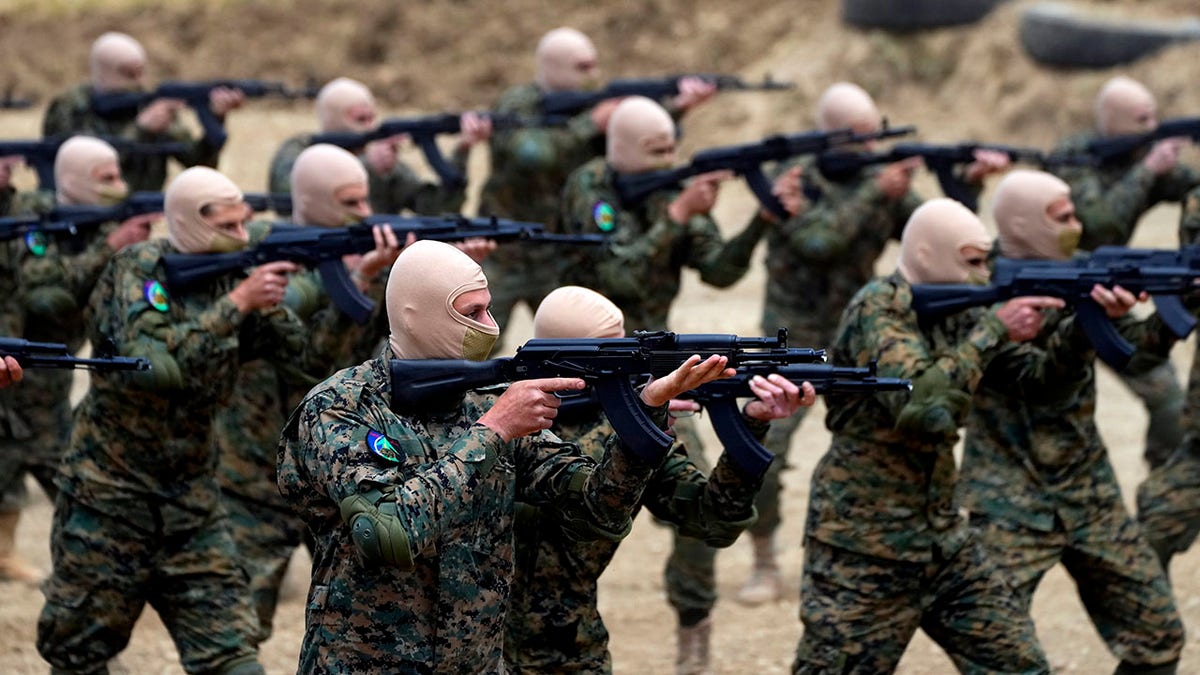
Hezbollah terrorists take part in a training exercise in the village of Aaramta, southern Lebanon, in May 2023. (AP/Hassan Ammar)
“Hezbollah tries to keep the location, routes, internal structure, etc. of these tunnels secret. [It] It does this by expropriating territories, preventing civilians from entering certain areas and taking advantage of [its] “There is a huge presence and influence in the government,” Alma researcher Boaz Shapira told Fox News Digital.
Shapira said Hezbollah not only has the support of an estimated 40%-50% of the Lebanese population, but is “far better funded, organized, trained and armed” than the Lebanese government, army, police or even the United Nations Interim Force in Lebanon, which has a force of about 10,500 peacekeepers in Lebanon and was sent in after the 2006 war.
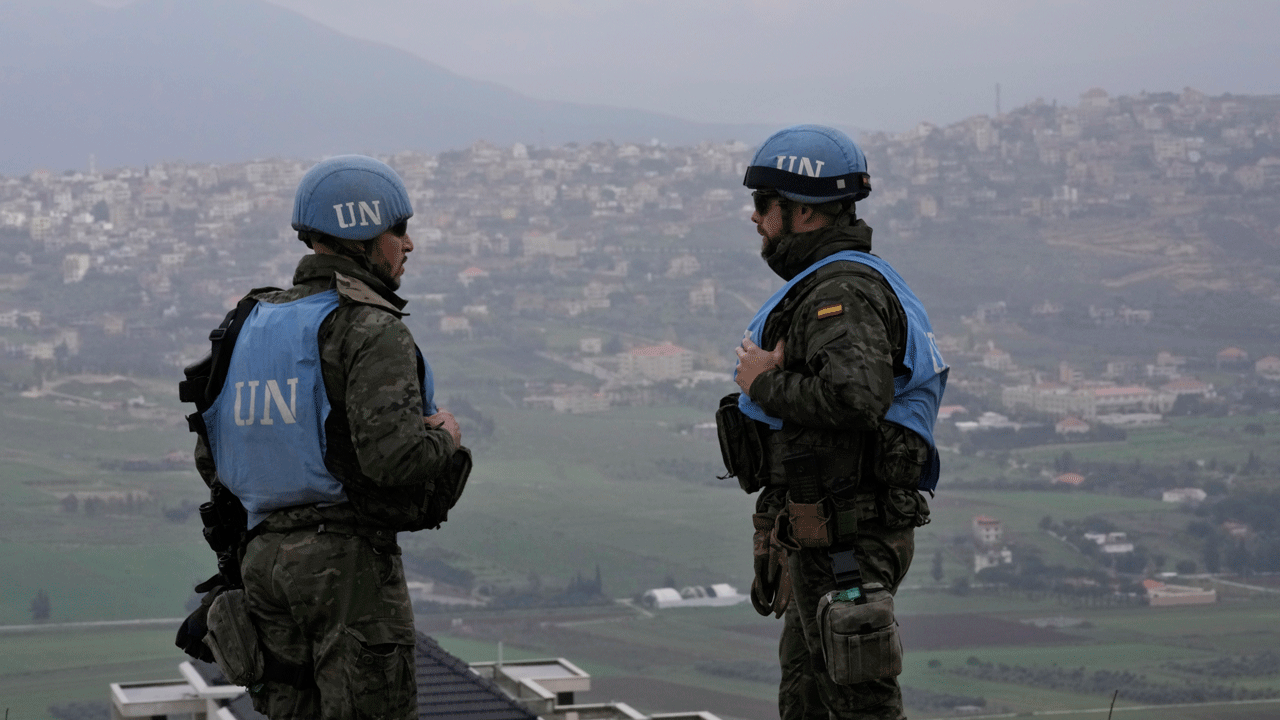
Spanish UN peacekeepers stand on a hill overlooking the Lebanese border with Israel on January 10, 2024.
Hezbollah's cooperation with authoritarian nations such as Iran and North Korea has long made it a major threat to Israel.
But its growing power inside Lebanon has pushed it to the top of the list when it comes to threats to Israeli security, according not only to Shapira but also former IDF Major General Yaakov Amidror.
“The Lebanese government is too weak to stand up to Hezbollah,” Amidror told Fox News Digital. “Everything important is decided by Hezbollah, not the government.”
Hezbollah Operatives Killed in Israeli Airstrikes as Terrorist Group Fires 100 Rockets at Jewish State
Hezbollah is believed to have some 50,000 terrorists and, according to Shapira, its sphere of influence has extended to almost all branches of Lebanon's security apparatus.
“Taking action against Hezbollah would be perceived as cooperation with Israel and basically as a betrayal in Lebanon, and last year also against the Palestinians,” he said. “That means no one in the military has any incentive to challenge Hezbollah.”
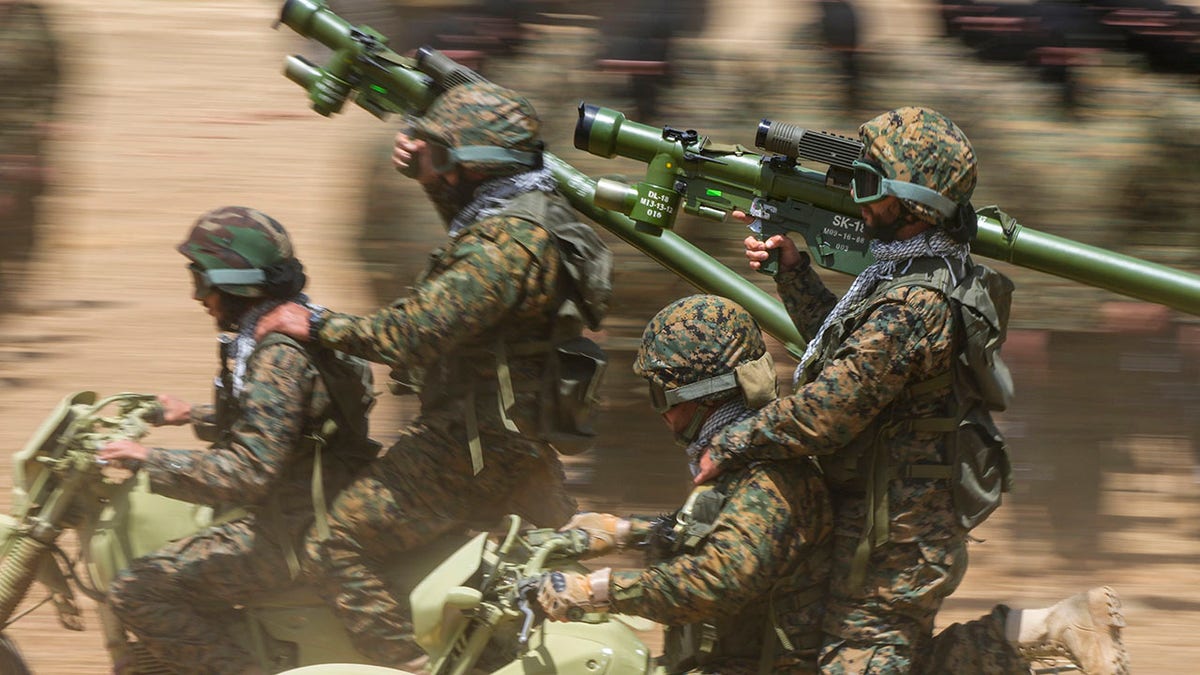
Hezbollah terrorist forces are training in southern Lebanon, near the Israeli border. (AP/Hassan Ammar/File)
Shapira said demographics within the once predominantly Christian nation have changed in recent decades and now have a majority Muslim population, although the U.S. State Department analyzes the distribution of Muslim populations in Lebanon as almost equally divided between Shiite and Sunni groups.
“This trend is also occurring in the army. This means that almost every Shiite soldier in the army has a brother, cousin or friend who is a Hezbollah terrorist,” Shapira said.
Amidror, a distinguished fellow at the Jewish Institute for National Security of America after serving as former national security adviser to Israel's prime minister and a 36-year veteran of the Israel Defense Forces, told Fox News Digital that he believes Israel must take a proactive approach when it comes to countering Hezbollah.
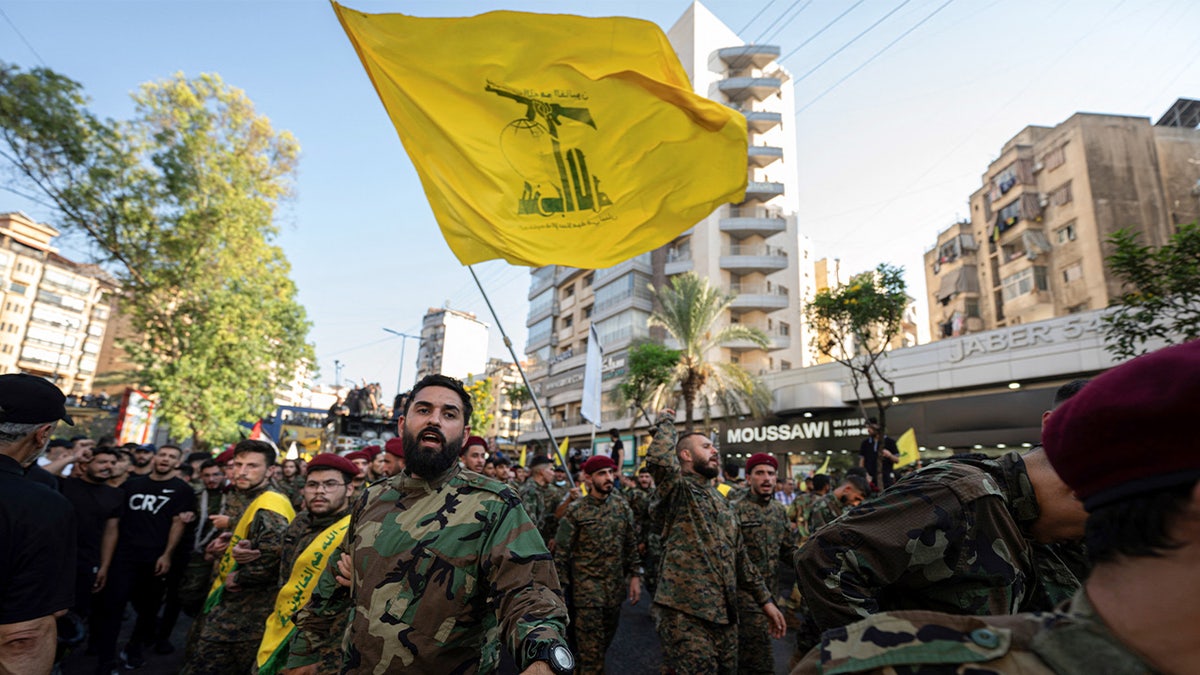
Hezbollah fighters form a human barrier during the funeral procession of top Hezbollah commander Fuad Shukr in the southern suburbs of Beirut on August 1, 2024. (KHALED DESOUKI/AFP via Getty Images)
CLICK HERE TO GET THE FOX NEWS APP
“We must start the war against Hezbollah,” he said, noting that the timing of his operation is the main variable that needs to be determined.
“It will not be an easy task. It will be a very, very devastating war for us and for Lebanon,” the retired general said. “Remember that at least 50% of their missiles were hidden in populated areas.
“The casualties will be enormous, [a] “It's a devastating war for us and for them,” Amidror continued. “That's why it's so problematic to fight these organizations, because they fight from within their own population.” [and their] The targets are the Israeli population.
“When you are fighting against civilians and the targets are civilians, it is very difficult to fight against them,” he added.

